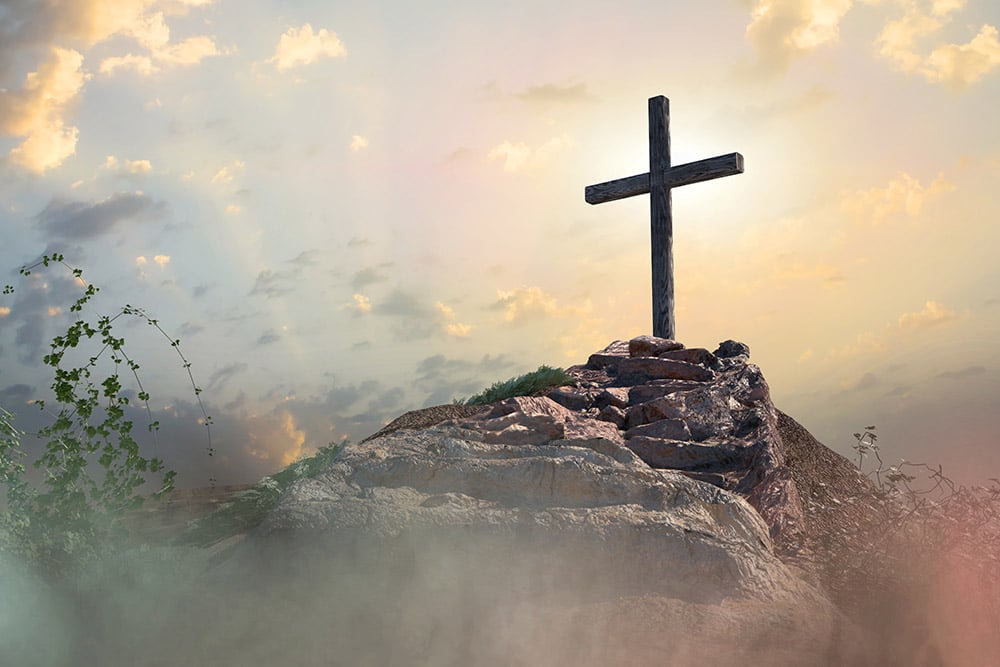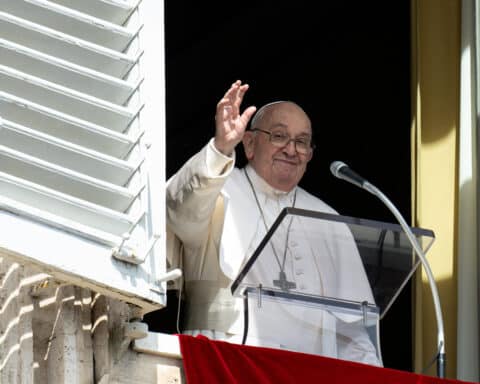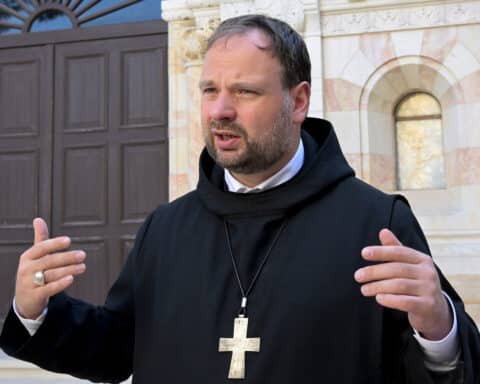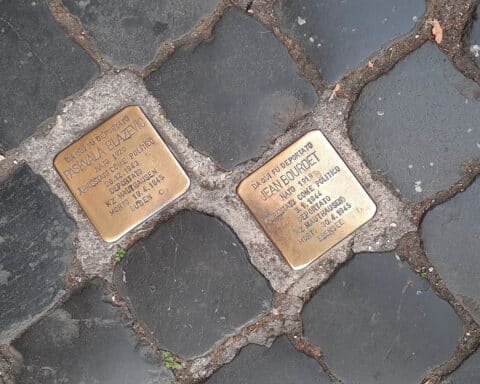
— Name, location withheld
Answer: The cross is a stumbling block to Jews due to a commonly held view reflected in the Book of Deuteronomy: “If a man guilty of a capital offense is put to death and you hang him on a tree, his corpse shall not remain on the tree overnight. You must bury it the same day; anyone who is hanged is a curse of God. You shall not defile the land which the Lord, your God, is giving you as a heritage” (Deut 21:22-23). Hence, some Jews would not abide the fact that Jesus died on a cross because they saw it as a sign he was cursed by God and could not be the Messiah.
This is not the only curse mentioned in Deuteronomy; there are many others, including exile, slavery and so forth. To expiate the community and individuals from curses, the Jewish rituals included the Day of Atonement (cf. Lev 16). Two goats are chosen by lot. One goat had the sins of the people laid upon it and was driven into the desert. The other goat is slain and its blood used to decontaminate the sanctuary, and the people also are freed of the curses due to sin.
The Christian answer to the Jewish scandal regarding the cross of Christ is, as St. Paul teaches, that Christ atoned for the curse in his letter to the Galatians: “Christ ransomed us from the curse of the law by becoming a curse for us, for it is written, ‘Cursed be everyone who hangs on a tree'” (Gal 3:13). In other words, Christ Jesus fulfills the meaning of Yom Kippur (the Day of Atonement) and cancels the ancient curse.
As for the gentiles, the cross is an absurdity since most of them followed the philosophy called Hedonism, which saw the goal of life as the pursuit and maximization of pleasure and the avoidance of suffering. To accept or embrace suffering as a way to glory was inimical to many of them and absurd.
And yet, as St. Paul teaches, “but to those who are called, Jews and Greeks alike, Christ [crucified is] the power of God and the wisdom of God” (1 Cor 1:24). There is nothing like the cross to confound the thinking of this world. St. Paul writes, in the same place: “Where is the wise one? Where is the scribe? Where is the debater of this age? Has not God made the wisdom of the world foolish? For since in the wisdom of God the world did not come to know God through wisdom, it was the will of God through the foolishness of the proclamation to save those who have faith” (1 Cor 1:20-21).
But, even for believers, the cross remains a great challenge. Most of us are fine with saluting the cross from afar. We sing songs like “Lift High the Cross” and place its likeness in our homes, even wear it as jewelry. But when the cross comes in for a landing in our lives and makes real demands on us or others, too often we seek to escape it or compromise its meaning. For example, when the world confronts us in anger and asks, “Are you saying that a woman who has been raped cannot abort the child but must carry it to birth?” the correct answer is, “Yes, that is what we are saying. The child did nothing wrong and should not be aborted for the sins of his or her father. This cross will be difficult for her, and we must help her to carry the cross and child. But it is also for her a road to glory.”
But instead of teaching this, many will be struck with embarrassment at the cross and be willing to exempt others in difficult situations. Similar difficult situations include saying no to the false compassion of physician assisted suicide or insisting that people with same-sex attractions live chastely rather than in unions that do not meet the biblical definition of marriage. And then, too, we also seek to exempt ourselves from crosses that may come to us. It is too rare that Catholics, both clergy and laity, actually lift high the cross and insist that it is the power and wisdom of God. But so it is; the cross is the way to glory.
Msgr. Charles Pope is the pastor of Holy Comforter-St. Cyprian in Washington, D.C., and writes for the Archdiocese of Washington, D.C. at blog.adw.org. Send questions to msgrpope@osv.com.





